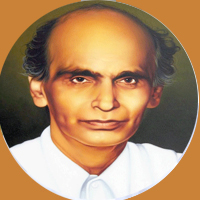Personal Profile
Naidu obtained work as a waiter in a hotel in Coimbatore with the intention of saving sufficient money to buy a motorcycle that he had seen. After getting the vehicle he spent time dismantling and re-assembling it and later became a mechanic. He began his transport business in 1920, with the purchase of an automobile coach. He drove it between Pollachi and Palani. In a few years, his Universal Motor Service (UMS) owned the most efficient fleet of public transport vehicles in the country.[5] In 1937, the first motor to be produced in India, was brought out from G. D. Naidu's factory "NEW" (National Electric Works) at Peelamedu, Coimbatore
G.D. Naidu was born at Kalangal, Coimbatore on 23 March 1893 into a Telugu family in Tamil Nadu, India. He was the son of a farmer.His childhood years were spent getting in trouble at school. He disliked attending classes and he was punished frequently for his habit of hurling sand and throwing stones at teachers during class.
G. D. Naidu (Gopalaswamy Doraiswamy Naidu) (23 March 1893 – 4 January 1974) was an Indian inventor and engineer who is also referred to as the Edison of India.[1][2] He is credited with the manufacture of the first electric motor in India. His contributions were primarily industrial but also span the fields of electrical, mechanical, agricultural (Hybrid cultivation) and automobile engineering.[3][4] Naidu also developed independently internal combustion four stroke engine. He had only primary education but excelled as a versatile genius. Among his hobbies was train travel to nearby cities. He is also referred as wealth creator of Coimbatore
Inventions & Later life
G.D. Naidu developed India's first indigenous motor in 1937 along with D. Balasundaram Naidu .It was the motor's success that resulted in the founding of Textool by Balasundaram and, later on, Lakshmi Machine Works (LMW).[6] Naidu's 'Rasant' razor incorporated a small motor operated by dry cells, called Heilbronn.[6] Among his other inventions were super-thin shaving blades, a distance adjuster for film cameras, a fruit juice extractor, a tamper-proof vote-recording machine and a kerosene-run fan. In 1941, he announced that he had the ability to manufacture five-valve Radio sets in India at a mere Rs 70/- a set. In 1952, the two-seater petrol engine car (costing a mere Rs 2,000/-) rolled out. But production was stopped subsequently, because of the Government's refusal to grant the necessary license. His inventiveness was not confined to machinery alone. He researched and identified new varieties in Cotton, Maize and Papaya. His farm was visited by Sir C. V. Raman and Visvesvaraya. From laying foundation to completion he has built a house in just 11 hours from morning 6am to evening 5pm.
In 1935, he personally filmed the funeral of King George V at London. He met Adolf Hitler in Germany.[7] He invited K. Kamaraj in many functions. Among the Indian stalwarts that Naidu's camera captured were Mahatma Gandhi, Pandit Jawarharlal Nehru and Subhas Chandra Bose. Naidu remained an outsider to politics, despite having contested and lost in the 1936 Provincial General Elections. He was gifted a Rolls Royce car and he was the only one who had this luxury car in those times. In 1944, Naidu retired from active involvement with his automobile combine and announced several philanthropic measures including grants for research scholarships and welfare schemes for his employees and the depressed sections of society. In 1967, the G D Naidu Industrial Exhibition was established. G.D. Naidu, Rathnasabapathy Mudaliar and India's first finance minister R. K. Shanmukham Chetty conducted survey, for bringing Siruvani water to the Coimbatore city
Naidu died on 4 January 1974. Sir C V Raman said of Naidu: "A great educator, an entrepreneur in many fields of engineering and industry, a warm-hearted man filled with love for his fellows and a desire to help them in their troubles, Mr Naidu is truly a man in a million – perhaps this is an understatement!" He is survived by his son G.D. Gopal and grandchildren G.D.Rajkumar and Shantini. A permanent Industrial Exhibition in his memory is on in Coimbatore. He provided employment in the engineering and manufacturing sectors to many individuals in the 1950s and 1960s. G. D. Matriculation Higher Secondary School in Coimbatore is named after him.[11] It is managed by his daughter-in-law Mrs. Chandra Gopal. His grandson Mr. G.D. Rajkumar now runs the Geedee Industries.

